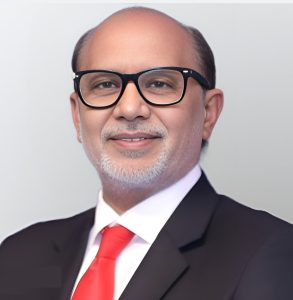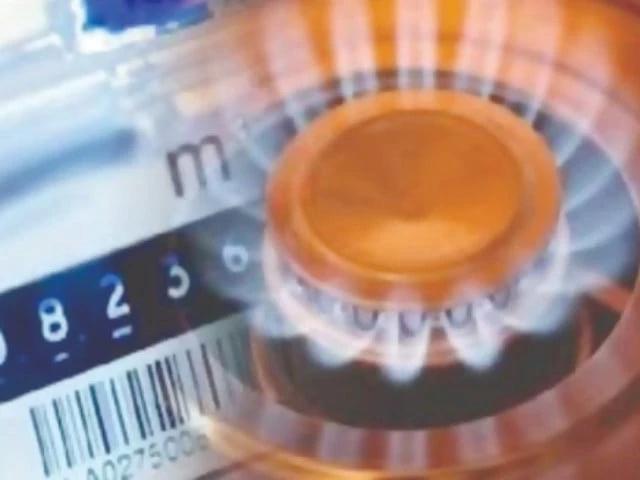
Muhammad Arif
In Pakistan’s energy landscape, few realities are more absurd—or more revealing—than the sight of two neighbours cooking on the same flame, from the same pipeline, yet paying two vastly different gas bills. One is charged the regular domestic tariff for “indigenous” gas, while the other, whose connection was sanctioned recently, is billed almost double under an “RLNG” rate. It is the same pipeline, the same pressure, and the same methane molecule—but two tariffs. This new form of discrimination, introduced after the government lifted its moratorium on domestic gas connections, marks the return of a policy that is neither lawful, scientific, nor fair.
Once imported liquefied natural gas (LNG) is re-gasified at terminals in Karachi and injected into the national grid, it becomes chemically indistinguishable from locally produced natural gas. Both consist primarily of methane and flow through a common network operated by Sui Southern Gas Company Limited (SSGC) and Sui Northern Gas Pipelines Limited (SNGPL). There is no physical segregation—no dedicated RLNG transmission or distribution pipeline. The distinction between “local gas” and “RLNG” exists only in the utilities’ billing ledgers—an administrative fiction, not a technical reality.
Yet SNGPL and SSGC have decided that all new domestic connections will be provided at the higher RLNG tariff, while existing consumers will continue to pay rates based mainly on domestic gas, with a small RLNG component added under the pretext of “diversion cost.” The result is absurd and inequitable: two adjoining homes on the same distribution line receive identical gas but pay dramatically different prices. The only difference is the date the meter was installed. The artificial price gap between old and new domestic connections will soon vanish under the weight of rising inefficiency, corruption, and maladministration—a pattern long evident in the history of the two Sui companies.
This practice offends common sense and contravenes the law as it stands since March 2022. The Oil and Gas Regulatory Authority (Second Amendment) Act, 2022, published on 5 March 2022, amended Section 2(1)(xvii) of the OGRA Ordinance, 2002, to expressly include re-gasified liquefied natural gas (RLNG) within the definition of “natural gas.” The same Act inserted Section 43B, directing OGRA to determine and notify the sale price of RLNG within the same statutory framework. This reform—known as the Weighted Average Cost of Gas (WACOG) regime—was designed to merge indigenous and imported gas costs into a unified national pricing structure, eliminating the very distinction now being revived.
Although no tenable justification exists, the Federal Government, under the guise of Section 43B of the OGRA Ordinance, continues to enable the Sui companies to collect unlawful revenue without monitoring the total BTUs of imported and locally produced gas supplied into the system, their respective proportions, and the RLNG BTUs charged to consumers each month. This amounts to a form of “system capture” that cannot easily be detected by lay consumers. A similar practice persists in allowing two different Unaccounted-for-Gas (UFG) benchmarks for imported and domestic gas, even though both are transmitted, distributed, and metered through the same network, with comingled molecules measured by the same utility meters.
Once RLNG was included in the statutory definition of natural gas, any separate treatment for pricing or tariff categorization became legally untenable. The law recognizes one commodity—natural gas—irrespective of origin. Subordinate instruments, such as policy circulars or internal SNGPL guidelines, cannot override a statutory amendment. By continuing to label some domestic consumers as “RLNG users” and charge them higher rates for the same supply, the utilities are effectively undoing Parliament’s intent and violating the statutory mandate.
Moreover, OGRA’s obligation under Section 6 of its Ordinance requires it to act in a transparent, equitable, and non-discriminatory manner. Section 8 empowers OGRA to determine tariffs in the public interest, ensuring fair treatment across consumer categories. Charging different rates to consumers of the same class—simply because one connection was approved after the moratorium was lifted—cannot be reconciled with this requirement. The practice institutionalizes discrimination between equals.
The inequity becomes even starker under competition law. The Competition Act, 2010, in Section 3(3)(b), prohibits price discrimination by charging different prices for the same goods or services from different customers without objective justification. Section 3(3)(e) further condemns “applying dissimilar conditions to equivalent transactions, placing other parties at a competitive disadvantage.” The Sui companies, as natural monopolies, clearly hold dominant positions within their territories. By differentiating tariffs among domestic consumers of the same category and service, they risk violating both the letter and spirit of OGRA’s mandate and competition law. No objective justification exists for why one household’s gas molecule should cost double that of its neighbour’s when both receive the same product from the same pipeline.
The common defence—that imported LNG costs more than indigenous gas—is equally hollow. The WACOG framework was enacted precisely to blend these costs transparently across the national system. Cost recovery is to be achieved through weighted averaging, not by re-segregating consumers into classes of privilege and penalty. To charge new customers higher rates under the guise of “RLNG allocation” is not cost-reflective pricing; it is regulatory discrimination.
This duality also has social consequences. It divides residential consumers into two unequal groups—the “old gas elite” and the “new gas poor.” It erodes public trust in regulation and undermines confidence in equitable service delivery. When citizens living in the same neighbourhood, sharing the same infrastructure, receive the same commodity at double the price, they lose faith not only in the regulator but in governance itself. Energy regulation is not merely about tariffs; it is about maintaining legitimacy in how public utilities treat citizens.
The solution lies in enforcing the law as written. OGRA must ensure that all domestic consumers connected to the same network are charged under a single, uniform tariff schedule. Any differentiation should rest only on objective factors such as consumption slabs or seasonal adjustments—not on arbitrary designations of gas source. The government, if it wishes to subsidize low-income households, should do so explicitly through fiscal transfers rather than hidden cross-subsidies.
Pakistan’s gas molecule carries no passport. Once injected into the national grid, it ceases to be “indigenous” or “imported.” It is simply natural gas. To pretend otherwise is to ignore science, defy law, and betray equity. The 2022 amendments were meant to unify the market and rationalize pricing. Two years later, we stand before the same contradiction—one molecule, two tariffs, two citizens, and one law that forbids it. The Regulator need to satisfy itself as to why urgent fee of Rs.25,000 should be charged from the consumers who had applied for gas connections many years ago; and as to why same UFG should not be allowed for the imported as well as locally produced gas separately for the transmission and distribution segments? The regulator must now decide whether to uphold the law, reasonableness, common sense, non-discriminately treatment to all or continue perpetuating a fiction that every Pakistani household can plainly see for what it is.
Opinions expressed in this article are the author’s own and do not necessarily reflect WNAM”s editorial policy.
(The Writer is : Former Member (Gas) of OGRA, petroleum lawyer, governance advocate, and consumer rights activist; [email protected]| 0333 5191381)


